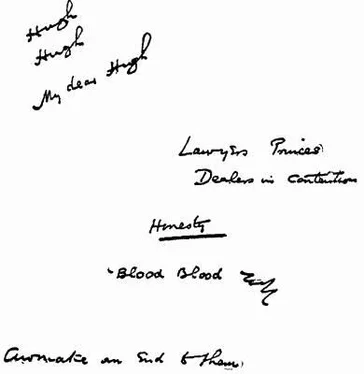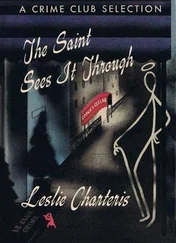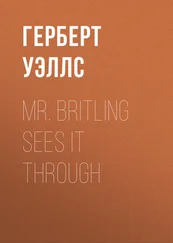Herbert Wells - Mr. Britling Sees It Through
Здесь есть возможность читать онлайн «Herbert Wells - Mr. Britling Sees It Through» весь текст электронной книги совершенно бесплатно (целиком полную версию без сокращений). В некоторых случаях можно слушать аудио, скачать через торрент в формате fb2 и присутствует краткое содержание. Жанр: Классическая проза, на английском языке. Описание произведения, (предисловие) а так же отзывы посетителей доступны на портале библиотеки ЛибКат.
- Название:Mr. Britling Sees It Through
- Автор:
- Жанр:
- Год:неизвестен
- ISBN:нет данных
- Рейтинг книги:4 / 5. Голосов: 1
-
Избранное:Добавить в избранное
- Отзывы:
-
Ваша оценка:
- 80
- 1
- 2
- 3
- 4
- 5
Mr. Britling Sees It Through: краткое содержание, описание и аннотация
Предлагаем к чтению аннотацию, описание, краткое содержание или предисловие (зависит от того, что написал сам автор книги «Mr. Britling Sees It Through»). Если вы не нашли необходимую информацию о книге — напишите в комментариях, мы постараемся отыскать её.
Mr. Britling Sees It Through — читать онлайн бесплатно полную книгу (весь текст) целиком
Ниже представлен текст книги, разбитый по страницам. Система сохранения места последней прочитанной страницы, позволяет с удобством читать онлайн бесплатно книгу «Mr. Britling Sees It Through», без необходимости каждый раз заново искать на чём Вы остановились. Поставьте закладку, и сможете в любой момент перейти на страницу, на которой закончили чтение.
Интервал:
Закладка:
§ 15
In this fashion it was that the great war began in Europe and came to one man in Matching's Easy, as it came to countless intelligent men in countless pleasant homes that had scarcely heeded its coming through all the years of its relentless preparation. The familiar scenery of life was drawn aside, and War stood unveiled. "I am the Fact," said War, "and I stand astride the path of life. I am the threat of death and extinction that has always walked beside life, since life began. There can be nothing else and nothing more in human life until you have reckoned with me."
BOOK II
MATCHING'S EASY AT WAR
CHAPTER THE FIRST
ONLOOKERS
§ 1
On that eventful night of the first shots and the first deaths Mr. Britling did not sleep until daylight had come. He sat writing at this pamphlet of his, which was to hail the last explosion and the ending of war. For a couple of hours he wrote with energy, and then his energy flagged. There came intervals when he sat still and did not write. He yawned and yawned again and rubbed his eyes. The day had come and the birds were noisy when he undressed slowly, dropping his clothes anyhow upon the floor, and got into bed....
He woke to find his morning tea beside him and the housemaid going out of the room. He knew that something stupendous had happened to the world, but for a few moments he could not remember what it was. Then he remembered that France was invaded by Germany and Germany by Russia, and that almost certainly England was going to war. It seemed a harsh and terrible fact in the morning light, a demand for stresses, a certainty of destruction; it appeared now robbed of all the dark and dignified beauty of the night. He remembered just the same feeling of unpleasant, anxious expectation as he now felt when the Boer War had begun fifteen years ago, before the first news came. The first news of the Boer War had been the wrecking of a British armoured train near Kimberley. What similar story might not the overdue paper tell when presently it came?
Suppose, for instance, that some important division of our Fleet had been surprised and overwhelmed....
Suppose the Germans were already crumpling up the French armies between Verdun and Belfort, very swiftly and dreadfully....
Suppose after all that the Cabinet was hesitating, and that there would be no war for some weeks, but only a wrangle about Belgian neutrality. While the Germans smashed France....
Or, on the other hand, there might be some amazing, prompt success on our part. Our army and navy people were narrow, but in their narrow way he believed they were extraordinarily good....
What would the Irish do?...
His thoughts were no more than a thorny jungle of unanswerable questions through which he struggled in un-progressive circles.
He got out of bed and dressed in a slow, distraught manner. When he reached his braces he discontinued dressing for a time; he opened the atlas at Northern France, and stood musing over the Belgian border. Then he turned to Whitaker's Almanack to browse upon the statistics of the great European armies. He was roused from this by the breakfast gong.
At breakfast there was no talk of anything but war. Hugh was as excited as a cat in thundery weather, and the small boys wanted information about flags. The Russian and the Serbian flag were in dispute, and the flag page of Webster's Dictionary had to be consulted. Newspapers and letters were both abnormally late, and Mr. Britling, tiring of supplying trivial information to his offspring, smoked cigarettes in the garden. He had an idea of intercepting the postman. His eyes and ears informed him of the approach of Mrs. Faber's automobile. It was an old, resolute-looking machine painted red, and driven by a trusted gardener; there was no mistaking it.
Mrs. Faber was in it, and she stopped it outside the gate and made signals. Mrs. Britling, attracted by the catastrophic sounds of Mrs. Faber's vehicle, came out by the front door, and she and her husband both converged upon the caller.
§ 2
"I won't come in," cried Mrs. Faber, "but I thought I'd tell you. I've been getting food."
"Food?"
"Provisions. There's going to be a run on provisions. Look at my flitch of bacon!"
"But——"
"Faber says we have to lay in what we can. This war—it's going to stop everything. We can't tell what will happen. I've got the children to consider, so here I am. I was at Hickson's before nine...."
The little lady was very flushed and bright-eyed. Her fair hair was disordered, her hat a trifle askew. She had an air of enjoying unwonted excitements. "All the gold's being hoarded too," she said, with a crow of delight in her voice. "Faber says that probably our cheques won't be worth that in a few days. He rushed off to London to get gold at his clubs—while he can. I had to insist on Hickson taking a cheque. 'Never,' I said, 'will I deal with you again—never—unless you do....' Even then he looked at me almost as if he thought he wouldn't.
"It's Famine!" she said, turning to Mr. Britling. "I've laid hands on all I can. I've got the children to consider."
"But why is it famine?" asked Mr. Britling.
"Oh! it is !" she said.
"But why?"
"Faber understands," she said. "Of course it's Famine...."
"And would you believe me," she went on, going back to Mrs. Britling, "that man Hickson stood behind his counter—where I've dealt with him for years , and refused absolutely to let me have more than a dozen tins of sardines. Refused! Point blank!
"I was there before nine, and even then Hickson's shop was crowded— crowded , my dear!"
"What have you got?" said Mr. Britling with an inquiring movement towards the automobile.
She had got quite a lot. She had two sides of bacon, a case of sugar, bags of rice, eggs, a lot of flour.
"What are all these little packets?" said Mr. Britling.
Mrs. Faber looked slightly abashed.
"Cerebos salt," she said. "One gets carried away a little. I just got hold of it and carried it out to the car. I thought we might have to salt things later."
"And the jars are pickles?" said Mr. Britling.
"Yes. But look at all my flour! That's what will go first...."
The lady was a little flurried by Mr. Britling's too detailed examination of her haul. "What good is blacking?" he asked. She would not hear him. She felt he was trying to spoil her morning. She declared she must get on back to her home. "Don't say I didn't warn you," she said. "I've got no end of things to do. There's peas! I want to show cook how to bottle our peas. For this year—it's lucky, we've got no end of peas. I came by here just for the sake of telling you." And with that she presently departed—obviously ruffled by Mrs. Britling's lethargy and Mr. Britling's scepticism.
Mr. Britling watched her go off with a slowly rising indignation.
"And that," he said, "is how England is going to war! Scrambling for food—at the very beginning."
"I suppose she is anxious for the children," said Mrs. Britling.
"Blacking!"
"After all," said Mr. Britling, "if other people are doing that sort of thing—"
"That's the idea of all panics. We've got not to do it.... The country hasn't even declared war yet! Hallo, here we are! Better late than never."
The head of the postman, bearing newspapers and letters, appeared gliding along the top of the hedge as he cycled down the road towards the Dower House corner.
§ 3
England was not yet at war, but all the stars were marching to that end. It was as if an event so vast must needs take its time to happen. No doubt was left upon Mr. Britling's mind, though a whole-page advertisement in the Daily News , in enormous type and of mysterious origin, implored Great Britain not to play into the hands of Russia, Russia the Terrible, that bugbear of the sentimental Radicals. The news was wide and sweeping, and rather inaccurate. The Germans were said to be in Belgium and Holland, and they had seized English ships in the Kiel Canal. A moratorium had been proclaimed, and the reports of a food panic showed Mrs. Faber to be merely one example of a large class of excitable people.
Читать дальшеИнтервал:
Закладка:
Похожие книги на «Mr. Britling Sees It Through»
Представляем Вашему вниманию похожие книги на «Mr. Britling Sees It Through» списком для выбора. Мы отобрали схожую по названию и смыслу литературу в надежде предоставить читателям больше вариантов отыскать новые, интересные, ещё непрочитанные произведения.
Обсуждение, отзывы о книге «Mr. Britling Sees It Through» и просто собственные мнения читателей. Оставьте ваши комментарии, напишите, что Вы думаете о произведении, его смысле или главных героях. Укажите что конкретно понравилось, а что нет, и почему Вы так считаете.






